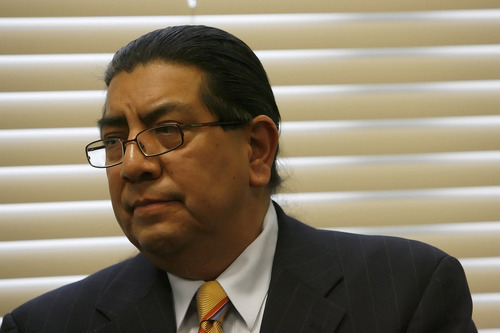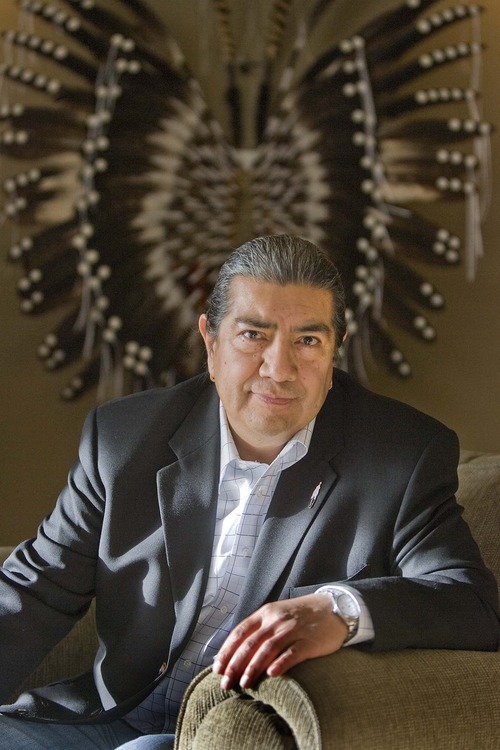This is an archived article that was published on sltrib.com in 2011, and information in the article may be outdated. It is provided only for personal research purposes and may not be reprinted.
Utah tribal leaders, still angry over the sacking of Forrest Cuch as state director of Indian Affairs last month, say they will demand that Gov. Gary Herbert apologize — not only to Cuch, but to the tribes for the way he was summarily dismissed.
In a resolution drawn up Wednesday at the Utah Tribal Leaders Council meeting in Salt Lake City, the tribes called Cuch's dismissal "patently offensive" and said it "demonstrates a manifest disregard and disrespect for the inherent sovereign authority of Native American tribes."The resolution is expected to be passed unanimously Thursday.
Representatives of Utah's seven Indian tribes invited the governor to address them at Wednesday's executive session of the council's quarterly meeting. But citing scheduling conflicts, the governor invited some of those gathered in Salt Lake City to his residence for lunch Wednesday.
Tribal leaders came away disappointed with the governor's explanation of why Cuch was fired.
Herbert spokeswoman Ally Isom said late Wednesday afternoon that the governor provided tribal leaders "with the explanation of why he did what he did with Forrest."
Isom said the dismissal was based on "performance issues" and, specifically, that the governor "was displeased" with the way Cuch "handled" last year's Utah Tribal Leaders Summit.
State department directors — Cuch was one — serve at the pleasure of the governor and can be dismissed at any time, without cause. But various tribal leaders said they had a hand in selecting Cuch and should have had been notified of any problems. No replacement has been named.
In an interview, Cuch said he was never notified of the governor's displeasure, either verbally or in writing.
Addressing the tribal leaders Wednesday, Cuch said the firing caught him by surprise because he had only received praise from the governor and others in state government.
He was required to pack up and leave his office immediately, with no further access to his computer, he said.
"They didn't have to do it that way. I didn't get one little thank-you" for 13 years of service, he said. "You don't have to treat people that way."
Cuch said he's not angling to get the job back. "I've moved on, so don't worry about me," he said. "It's been an honor and a pleasure to serve you."
Tribal leaders see the director of Indian Affairs as an important bridge between their sovereign nations and the state of Utah and had a hand in choosing Cuch for the job during the Mike Leavitt administration.
"When we selected Forrest, we knew he was the man for the job," said Ron Wopsock of the Ute Tribe, who surmised that politics — not personnel issues — were behind the termination. "He was penalized for standing firm on the issues. It hurts."
Madeleine Greymountain of the Goshute Tribe said Cuch's abrupt dismissal "saddened" her.
"I no longer support Gov. Herbert. If he continues to think he can treat us like that, he will, and so will others," she said. "He could have done it honorably, and he didn't."
Ute tribal Chairman Richards Jenks Jr. said he had heard no complaints about the tribal summit and wondered aloud who the critics were, since Cuch had unanimous support among the tribes.
"I got the feeling he was talking down to us," Jenks said of the lunch meeting with the governor.
As part of its proposed resolution, the tribes are calling on the governor to "immediately develop a formal consultation policy regarding its interactions and policies with Indian tribes in the state of Utah."





